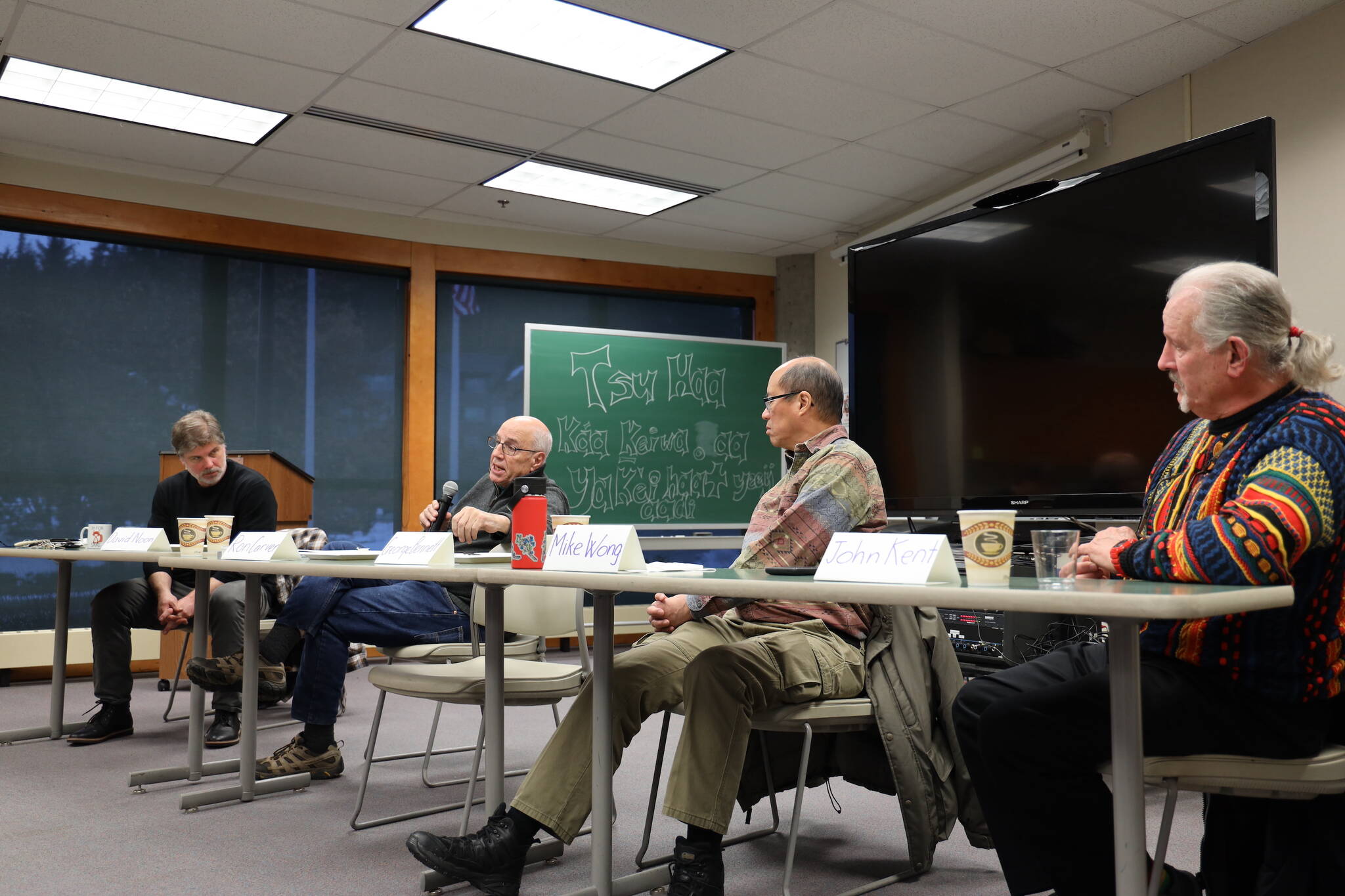John Kent isn’t proud to be a veteran, however, that doesn’t stop him from using his stories from his service to advocate against it and instead for peace.
A roundtable discussion titled “Patriotism, PTSD, and the Legacies of War,” was held Saturday afternoon at the University of Alaska Southeast and it addressed the lasting impacts of war along with the trauma and moral injuries endured by the American people and the other parts of the world who were affected.
[Vets protesting past wars are a lesson for today’s, exhibit leader says]
“I did not want to kill people,” said Mike Wong, one of the speakers at the event who shared stories about his time in the Army after being drafted in 1969, and his decision to go absent without official leave instead of going to Vietnam. “We were serving the rich, not our country.”
The discussion was held in parallel to a new UAS exhibit “Waging Peace In Vietnam: The Story of U.S. Soldiers and Veterans Who Opposed the War,” which will remain on display until Dec. 15, with a series of events, like the roundtable discussion, scheduled during that time.
“I think I was brainwashed to be patriotic and unquestioning,” Kent said about his time in the military during the Vietnam War era.
[‘It’s good that we can all come together’: Veterans Day observances held in Juneau]
UAS history professor David Noon moderated the event and was joined by exhibit curator Ron Carver and veterans Wong and John Kent. In front of a crowd of around 25 people, the group spoke about their personal experiences with the war in Vietnam and the traumas and lasting impacts it had on their lives. Members of the audience also spoke up to share their stories and advocate why they choose now to openly speak against both the Vietnam War and wars in general.
“We have a responsibility as civilians to say it’s wrong — they cannot do this in our name,” said Donna Kent, an audience member and wife of roundtable speaker John Kent.
Carver — who became a civil rights and anti-war advocate in the 1960s during his time working with the U.S. Servicemen’s Fund from 1969 to 1971 helping to set up coffeehouses in Army towns where soldiers would meet to write antiwar newspapers to smuggle onto the bases, — said one of the many purposes of Saturday’s roundtable and the other antiwar displays and events being held at UAS is to bring more awareness to the “moral injuries” that haunt many veterans and other people who have been impacted by wars even going on today.
“The stories of the soldiers back in Vietnam changed my life — it gave me a sense of how evil and destructive the war was,” he said. “We have to encourage and nurture a new generation of storytellers who can keep alive these stories of warning.”
Noon agreed and said it’s important to find ways to connect to younger generations about the impacts of wars on their generation and the people in the generations surrounding them.
“It’s as far in their rear-view mirror as the second war was for me,” Noon said about his experience talking to his students about the Vietnam War. “I think it’s important to keep those memories alive.”
Nguyet Nguyen, a history teacher at UAS attended the event and said one of the steps UAS is taking to bring more awareness to the younger generation is her new class starting next semester titled “The Vietnam War in Film.”
She said the class will focus on how the media portrays the war versus the reality, and she said the class will be free to local seniors who are interested in getting involved.
• Contact reporter Clarise Larson at clarise.larson@juneauempire.com or (651)-528-1807. Follow her on Twitter at @clariselarson.

